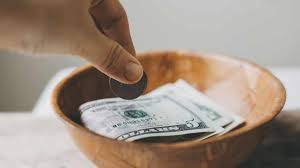By Darren Brown
The rich ruleth over the poor, and the borrower is servant to the lender. Proverbs 22:7
As we celebrate this another Jamaican Emancipation Day, we are reminded of August 1, 1838, when thousands of ex-slaves gathered at town centres and churches in the British Caribbean territory and erupted into joyous celebrations after hearing the final words of the Emancipation Declaration, affirming their full freedom from slavery.
Who doesn’t love being independent? Just about everybody wants to become financially independent – so why do so few people get there?
One of the secrets to attaining financial independence is that it doesn’t usually “just happen”. It starts with a detailed plan and a willingness to commit to that plan.
What does financial freedom mean to you? I gather you may define it as finding yourself in a financial position where work is a choice. Simply put, freedom means you are in control of your finances and your life choices.
Many persons are trapped in a perpetual cycle of working and living pay cheque to pay cheque, feeling overwhelmed and lacking any sort of control in varying areas of their lives. If you had an available alternative, would you not rather choose that path?
Additionally, persons face financial burdens because of making desperate choices. This, in most instances, is caused by living above their means and trying to impress friends and family by living in an apartment where they are struggling to meet monthly payments. Using credit cards to supplement your already small income will certainly erode your wealth and make you feel imprisoned.
To get out of this prison cell or, better yet, to avoid it entirely, all you need is a plan you can use to keep you from getting tricked into doing things that create financial imprisonment. It might seem difficult to many, but if you are focused, self-disciplined, and make a conscious effort, you can do it.
Dave Ramsey is a proponent of living a debt-free life. Through his Financial Peace University classes and books; he coaches and shares seven (7) baby steps for getting out of debt and building wealth.
- Baby Step 1: Beginner emergency fund
- Baby Step 2: Pay off all debt (except the mortgage) using the debt snowball. Basically, you order your debts from smallest to largest and pay them off in that order. By doing this, you can optimise the effect of getting quick victories by paying off the smaller debts faster.
- Baby Step 3: Put three to six months worth of expenses into savings as a full emergency fund.
- Baby Step 4: Invest 15 percent of your household income into a retirement pension plan.
- Baby Step 5: Begin college funding for your kids.
- Baby Step 6: Pay off your home early.
- Baby Step 7: Build wealth and give.
Source: DAVE RAMSEY’S COMPLETE GUIDE TO MONEY – The Handbook of Financial Peace University






